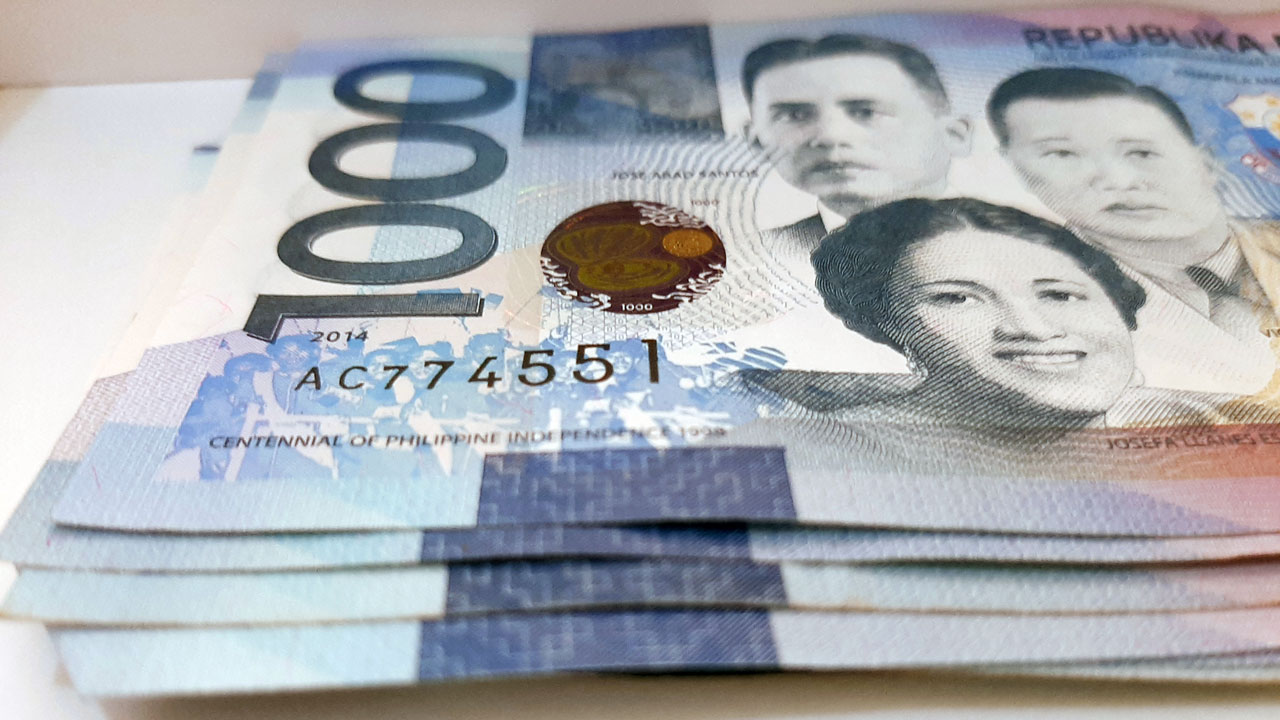




Philippines Trade Update: Imports weaken on tepid demand
 DOWNLOAD
DOWNLOAD

Policy Rate Updates: BSP outlook — cloudy with a chance of rate cut
 DOWNLOAD
DOWNLOAD

January Economic Update: Growth slows, prices rise
 DOWNLOAD
DOWNLOAD


BSP seeks to curb forex speculation

The Bangko Sentral ng Pilipinas (BSP) will only intervene in the foreign exchange (forex) market to “control the speculation,” its top official said.
BSP Governor Eli M. Remolona, Jr. also said the peso’s recent weakness will not prompt the need for any rate hike.
“In situations in which the peso depreciates, there’s a tendency for stress. The dealers, the traders, they tend to offer big amounts when they’re trying to sell the peso and sometimes the prices fluctuate more than before. So, we try to control that,” he told reporters late on Wednesday.
“We want those who really need dollars to get the dollars at a reasonable price. We’re just trying to control the speculation,” he added.
The peso closed at P58.13 against the dollar on Thursday, weakening by seven centavos from its P58.06 finish on Wednesday.
Mr. Remolona said that the central bank intervened by small amounts on Tuesday, when the peso sank to the P58 level for the first time in over 18 months or since Nov. 10, 2022.
“So far, it has been steady. There is still no stress. The market remained orderly… we haven’t been intervening every day and when we do intervene, it’s very modest amounts,” he added.
Asked if the peso’s depreciation would open up the possibility of a rate hike, Mr. Remolona said this was “not likely” as inflation expectations remain the key consideration for further tightening.
“Actually, raising the policy rate would entail the inflation expectations getting de-anchored, there we might consider raising but as long as inflation expectations behave and the data going forward are similar to what has been happening, highly unlikely that we will tighten,” he added.
The Monetary Board kept its benchmark rate at a 17-year high 6.5% for a fifth straight meeting last week.
The central bank has raised borrowing costs to a cumulative 450 basis points (bps) from May 2022 to October 2023.
Mr. Remolona reiterated that the earliest the BSP could begin policy easing is by August, with “possibly” another cut before the end of the year.
The central bank could cut by up to 25-50 bps for this year, depending on the data, he added.
NO NEED TO WAIT FOR FED
Despite the peso weakness, Mr. Remolona maintained that the BSP does not need to wait for the Fed to cut rates.
“We don’t care that much when the Fed cuts. We care more about our data,” he said. “Of course, we follow the Fed very closely and what they decide is one data point for us, it’s one among many other data points.”
The central bank is also comfortable with its level of dollar reserves, the BSP chief said.
“We are comfortable with the amount of reserves that we have. The reserves we have exceed what the International Monetary Fund (IMF) considers as adequate. They give us a measure of the reserve adequacy. We’re above that,” he added.
Separate data from the BSP showed the country’s gross international reserves inched down by 0.6% to $103.44 billion as of end-April from $104.07 billion at end-March.
As of end-April, the level of dollar reserves was enough to cover about 5.9 times the country’s short-term external debt based on original maturity and 3.6 times based on residual maturity.
It was also equivalent to 7.7 months’ worth of imports of goods and payments of services and primary income.
FINANCIAL INCLUSION
Meanwhile, Queen Máxima of the Netherlands said that the Philippines has made strides in expanding financial inclusion but that the government must continue to accelerate its efforts.
“Since my last visit in 2015, Filipinos have much more access to financial inclusion,” she said at a press conference organized by the BSP on Thursday.
Queen Máxima is visiting the Philippines in her capacity as the United Nations Secretary-General’s Special Advocate for Inclusive Finance for Development (UNSGSA).
She noted that financial inclusion may face challenges such as affordability of services and connectivity.
“One of the things is that we see that the cost of connectivity is still very high… We need to really go to the poorest and to the most distant places. We need to make a lot of investments jointly with the private sector to basically improve connectivity, quality, speed and also reduce the prices. That’s how we’re also going to make payments more affordable for people,” she said.
She also noted the need for competition to encourage innovation.
The share of Filipinos with bank accounts reached 65% of the adult population in 2022, the BSP reported earlier.
Mr. Remolona said the BSP talked about open finance with Queen Máxima, adding this is a “very promising way to get more and more people involved in the financial system.”
“What we have in the Philippines is the big banks, they each have their own API (application programming interface) platform. That’s not open finance. Open finance means it’s not just connected to one bank, that API is connected to several banks, so that the consumer has a choice of which bank, which financial service would be involved,” he said. — By Luisa Maria Jacinta C. Jocson, Reporter
This article originally appeared on bworldonline.com





 By BusinessWorld
By BusinessWorld